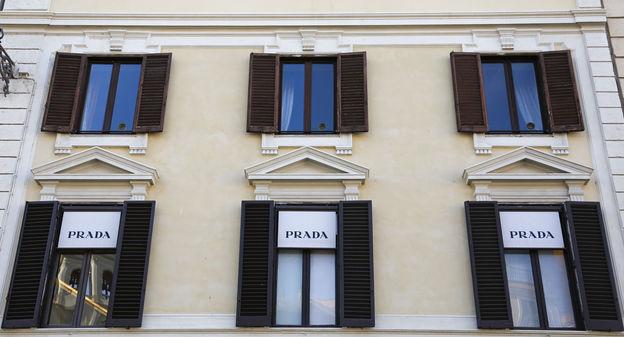Major global luxury brands are reinvesting in China

by Farah Master and Donny Kwok
HONG KONG (Reuters) - Big global luxury brands from Prada to LVMH are investing again in China five years after they launched a campaign against ostentatious spending there, targeting youth and smaller towns .
Despite the slowdown in the world's second largest economy, the increase in spending by the young Chinese generation, little affected by the fight against corruption and the display of luxury, encourages the giants of the sector to modernize some stores and open new ones in smaller cities where market growth is stronger.
Young people, who absorb about 30% of the sector's sales in China, are less sensitive to macroeconomic factors, note the leaders of the groups concerned.
"We are seeing the emergence in China of a very vigorous upper or upper middle class," said Jean-Paul Agon, CEO of L'Oréal, during a conference call with financial analysts. "And what has changed is that now the 'millennials' of this class (...) have absolutely no hesitation in acquiring luxury goods."
Often pampered only children, members of the 20-34 generation started buying luxury brands at a very young age and are making more frequent purchases, drawn to everything from jewelry to fashion, cosmetics and hand bags.
They also typically choose to stay in their provincial towns, avoiding the expensive living of big metropolises like Beijing and Shanghai, a move fostered by the country's industrialization and rapid urbanization.

Revenue growth in China's luxury sector was 15 to 20 percent in the first half, said Daniel Zipser, a partner at Shanghai-based research firm McKinsey.
FEARS OF A TRADE WAR
The Chinese buy more than 500 billion yuan (64 billion euros) of luxury goods a year, almost a third of the global luxury market, according to a report by McKinsey.
Major brands, from Gucci, a subsidiary of Kering, to the British Burberry and Hermès, all reported good resilience in Chinese demand for their products in the second quarter, despite the escalation of trade tensions between the China and the United States which has clouded the economic outlook.
The share of sales made in China is growing rapidly, several industry executives note. This trend is favored by two decisions by the Chinese authorities: a reduction in customs duties on certain products, which the major brands have passed on to their prices, and the establishment of obstacles to online purchases on foreign sites. The strength of the euro in early 2018 also discouraged tourists from buying while traveling in Europe, executives report.
The prices of luxury goods in China, which were significantly higher than in Europe and the United States, are gradually decreasing. Taxes were also lowered from 7% to 17%, which helped moderate prices.
Italian clothing brand Moncler has lowered prices by an average of 3.5% in China since July, while Gucci, Louis Vuitton and Hermès have also slashed prices.
INCREASE IN MEDIUM-SIZED CITIES
To capture young customers, the major global brands are setting themselves up further and further away from the megalopolises, which were previously the engines of their growth in China.
Hermès will open a store in Xi'an, an imperial city in the center of the country, in September where Prada has already opened seven since the beginning of the year. LVMH has opened a boutique in Wuhan, a city of 11 million inhabitants, and Chaumet has established itself in Wuxi, near Shanghai.
Nevertheless, luxury groups are worried about the potential consequences of trade tensions between China and the United States on demand in the second half.
LVMH chief financial officer Jean-Jacques Guiony warned analysts in July of the potential risks of rising US tariffs.
"Although the luxury industry is not on the front line in this matter, such a risk would certainly have some negative consequences for us," he said.
Similarly, brands have developed their digital offer to attract Chinese customers.
Louis Vuitton and Gucci created Chinese online sales sites last year and Hermès should do the same by the end of the year.
(With Giulia Segreti in Milan, Sarah White in Paris and the Shanghai and Beijing offices, Juliette Rouillon for the French service, editing by Bertrand Boucey)
- Prev
- Next







